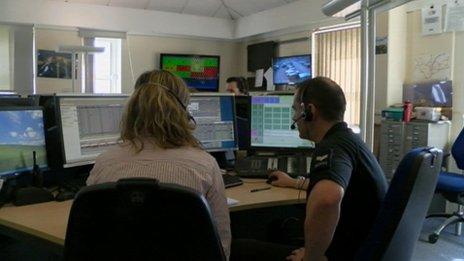Mental health police cell crackdown affects Plymouth A&E
- Published
Devon and Cornwall Police has announced a 73% drop in mental health patients detained in cells since January 2015.
Mental health patients are being placed into overstretched A&E departments as police crackdown on the number locked up in their cells, it has been claimed.
Devon and Cornwall Police has announced a 73% drop in mental health patients detained in cells since January 2015.
Dr Anne Hicks, who runs the A&E department at Derriford Hospital, Plymouth, said they had seen a sharp rise in evening and weekend cases.
She warned the police policy was causing "tension" between the services.
In January 2015, Chief Constable Shaun Sawyer wrote in confidence to NHS bosses and told them police would take mentally ill people to hospital and other places of safety, rather than keep them in custody.
It said that police would be encouraged to call an ambulance if they detained a mentally ill adult, and should take a child to an A&E Department.
'Waiting times affected'
Dr Hicks, mental health lead for the Royal College of Emergency Medicine, said "agitated mental health patients" were brought into the hospital by officers, which "created real tension between us and the police".
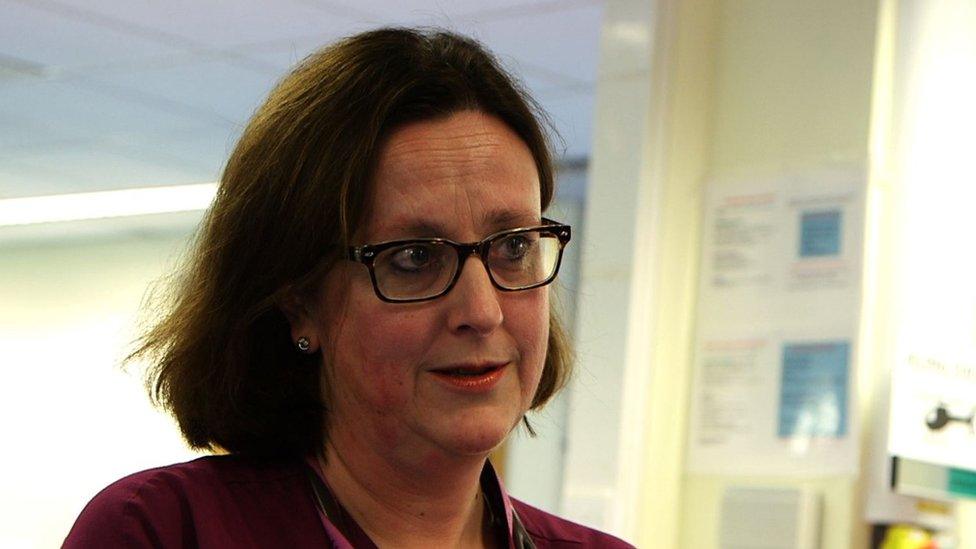
Dr Anne Hicks said the police policy had coincided with an overall rise in out of hours mental health admissions, which she estimated to be around 20%
She said the police policy had coincided with an overall rise in mental health admissions after normal working hours finished at 17:00 BST, which she estimated to be around 20%.
"We don't feel we can deliver that safe nurturing space those patients need," she added.
Suzy Franklin, branch secretary of Unison at the hospital, said the rise added pressure to A&E, which "has a knock-on effect for waiting times".
In his letter Chief Constable Sawyer said health services should be providing care for mentally ill people.
It said: "Nearly every week my force is experiencing detentions where mentally ill people are in our custody centres for a number of unacceptable hours and even days. This cannot be allowed to continue."
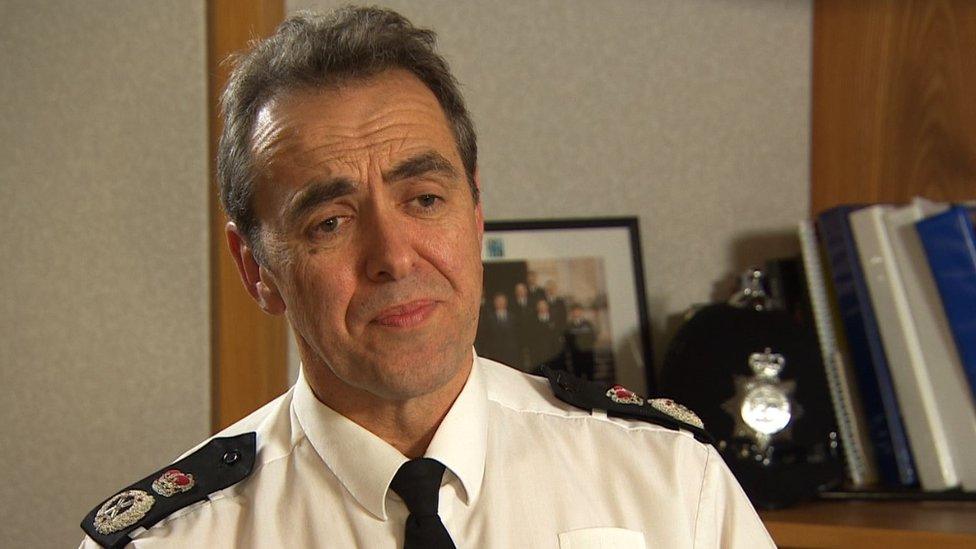
Chief Constable Shaun Sawyer said mental health calls put "an awful lot of time and pressure" on officers
The letter said the force would take mentally ill people to hospital and other places of safety rather than keep them in custody.
Ordinarily those people who police believe to be a threat to themselves or others due to mental illness would be sent to a secure part of a mental hospital.
Since the letter, there have been 192 detentions under the Mental Health Act - a drop of 73% compared to the previous 12 months.
Mr Sawyer said mental health calls put "an awful lot of time and pressure" on officers as they know "they're not the best person to deal with them".
He said the "intention was not to pass" them on to hospitals, but if they are not at risk to themselves or others, then "A&E is the next best place to consider before a police cell".
The government has pledged £247m to improve mental health services in A&E.
- Published20 July 2015
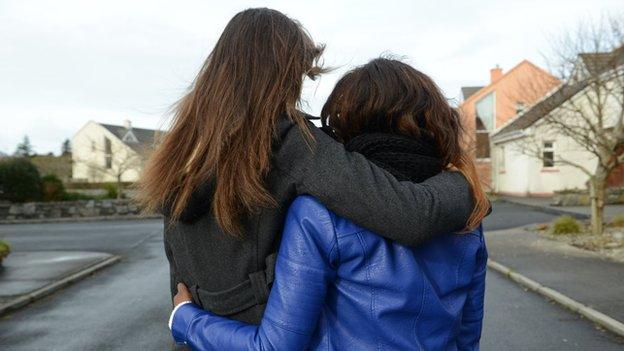
- Published25 January 2015
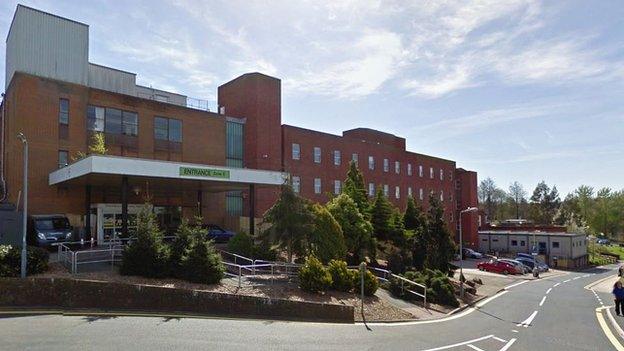
- Published22 March 2014
